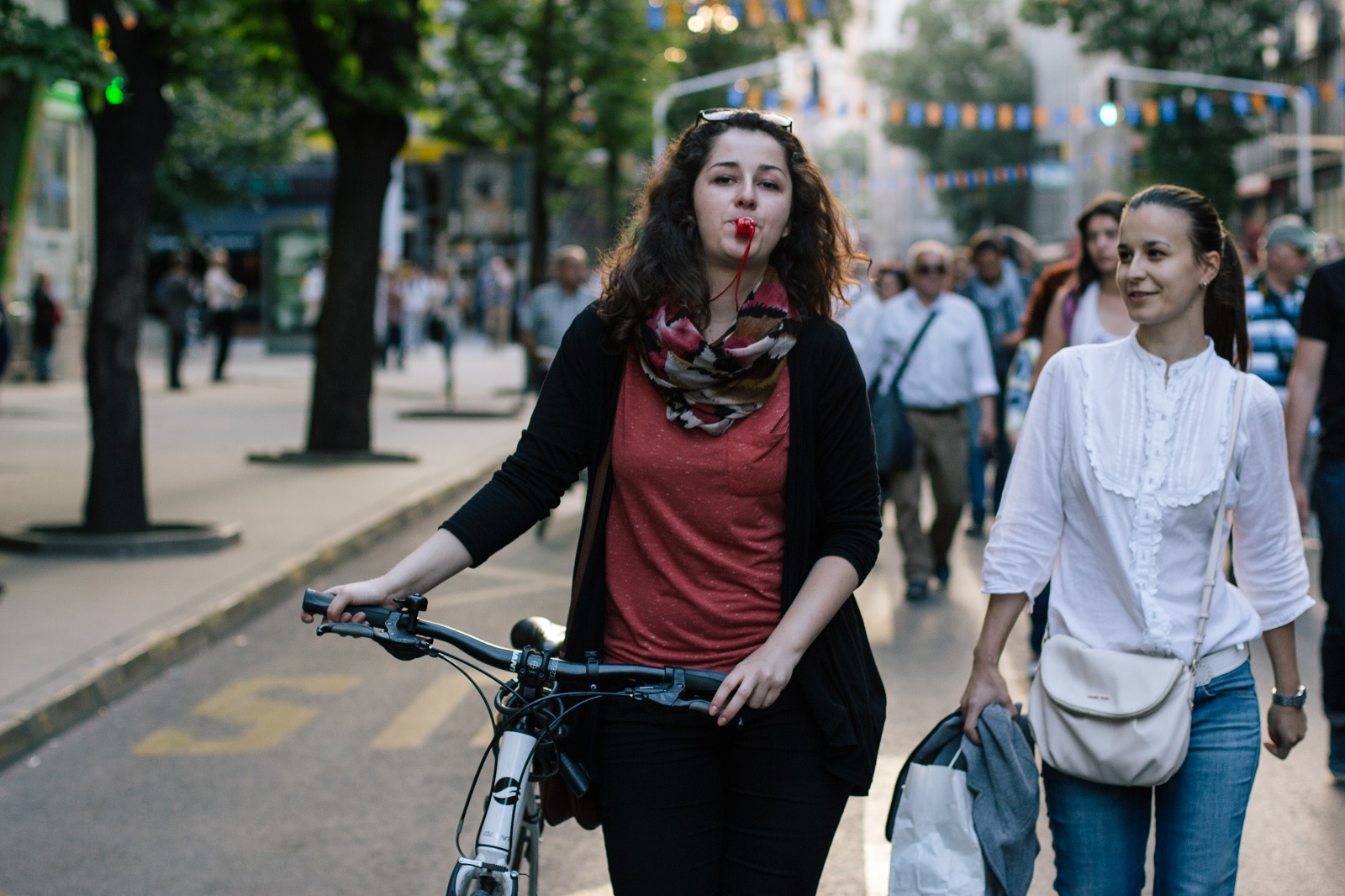
4 Photos
The questions on everyone’s mind are: Is this a real Balkan spring? Can we declare it yet? Is Gruevski going to fall? These are all relevant questions but I’m not going to focus on them here. After Sunday’s protests, I believe we have a much bigger reason to celebrate in Macedonia.
In its 23 years of existence, Macedonia has seen a number of protests and political rallies. The protests, sometimes coordinated and/or initiated by a political party, and sometimes by citizens themselves, have been successful to a greater or lesser extent. In 1997, we saw students protesting against the introduction of the Albanian language at the Philological Faculty in Skopje. In 2001, we saw Macedonians protesting against the extraction of KLA terrorists from the village of Arachinovo. And prior to every election cycle, we’ve seen waves of political rallies, in most cases chaotic displays of bad humor, accusations and a teaspoon of talk about policies.
And then I attended Sunday’s protest in front of the government.
Officially organized by and with the technical and logistical support of the Social-Democratic Union of Macedonia, the protest was not a political rally. At the same time, it wasn’t a thematic protest. For the first time, the various interest groups who have been voicing their opposition towards the government finally came together. However, they came together not as a collection of different interest groups, but as a united opposition, one that recognizes that the lack of democracy in the country is an underlying illness for all of our individual grievances with the government’s policies. This is different from forming a coalition of opposition groups. A coalition is based on a minimum common denominator, while Sunday’s protesters shared a sense of maximum civic interest.
It kicked off with searing speeches in Macedonian and Albanian by the Student Plenum organizers, and ended with an awe-inspiring parade of flags and pledges onstage. There was no anti-Albanian sentiment expressed, unlike the student protests in 1997. The well-known civic activist Xhabir Deralla’s emotions onstage were felt throughout the crowd. Some activists had given up the fight over the past nine years. Not Xhabir. Beni Shaqiri jumped on the stage, singing in both Macedonian and Albanian, as both he and the crowd carried Macedonian, Albanian, Turkish, Serbian, Bosnian and Bulgarian flags. Who even remembered 2001?
Mirjana Najcevska, the face of activism for human rights, spoke proudly of her father, a World War II veteran cheering in the crowd. And her father had every right to be proud of his daughter, a veteran in her own right. Many joked of Ognen’s bass making the Styrofoam façade of the government tremble. I don’t know about the façade, but his poignant account of Tamara’s tale made thousands of hearts tremble. Macedonia’s professional diplomat, Nikola Dimitrov, reminded us that it is possible to be professional and true to one’s career. (In addition, you wouldn’t be able to grasp the complete atmosphere if I didn’t also mention the numerous female ‘ah’s at his appearance onstage). Vladimir Milchin was there as the face of each and every free thinker that has ever been persecuted by this regime. In a lot of ways, this energetic mustached professor was the avant-garde for many of his younger colleagues over the past nine years.
Petrit Saracini’s speech, spoken half in Macedonian and half in Albanian, made perfect sense to all of us. We all understand our problems well enough, even when they’re articulated in a language we don’t speak ourselves. A potent speech given by Marija Jones reminded us of the unfair economic conditions that a powerful group of individuals have imposed on the rest of us. Knut Fleckenstein and Sergei Stanishev couldn’t have hoped for a better audience. And for the first time, a speech by a party president was whole-heartedly welcomed by party and non-party members alike.
Theater director Aleksandar Popovski spoke of “the ant that carried a drop of water to extinguish the forest fire”. And that’s a feeling we were all too familiar with: We all carried our own little drops of water to stop the regime.
We were united in our fight against the regime, for it was our fight for democracy. However things play out now is of less importance for the longterm vitality of our country. There will be political agreements and processes and a whole array of developments. What’s crucial is that we already have this: We’ve awakened the yearning of citizens to stand up for our own rights. To stand up to a dictator. To stand up for democracy.
All photos by Julia Druelle, with permission.





